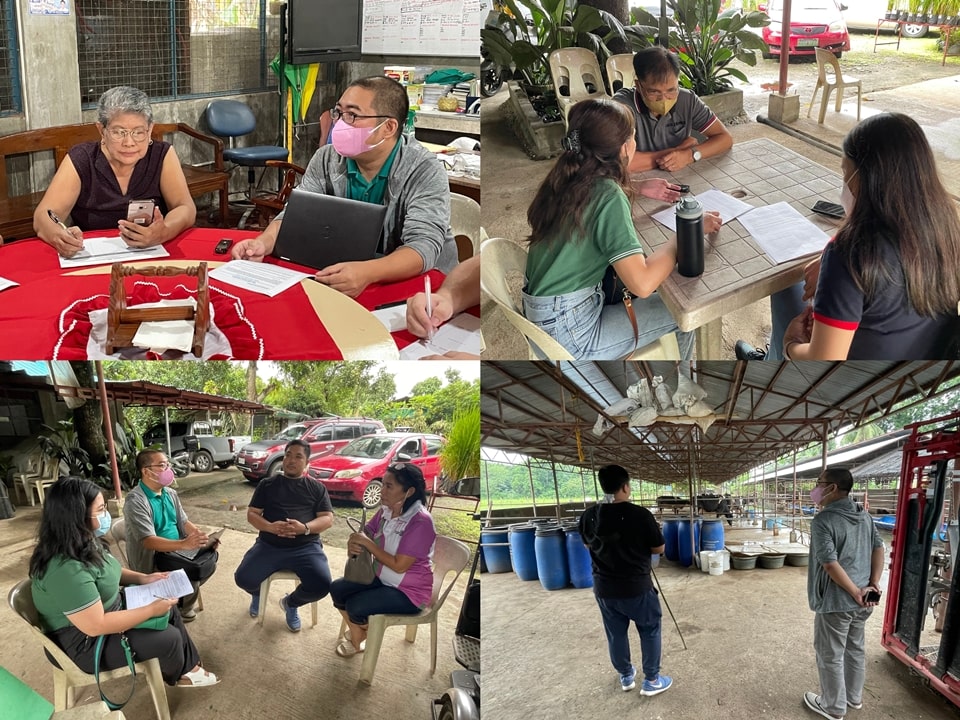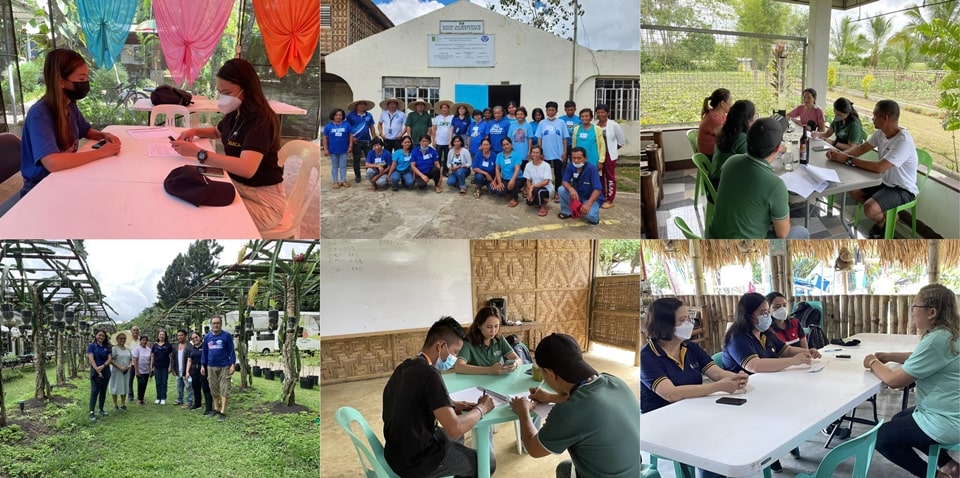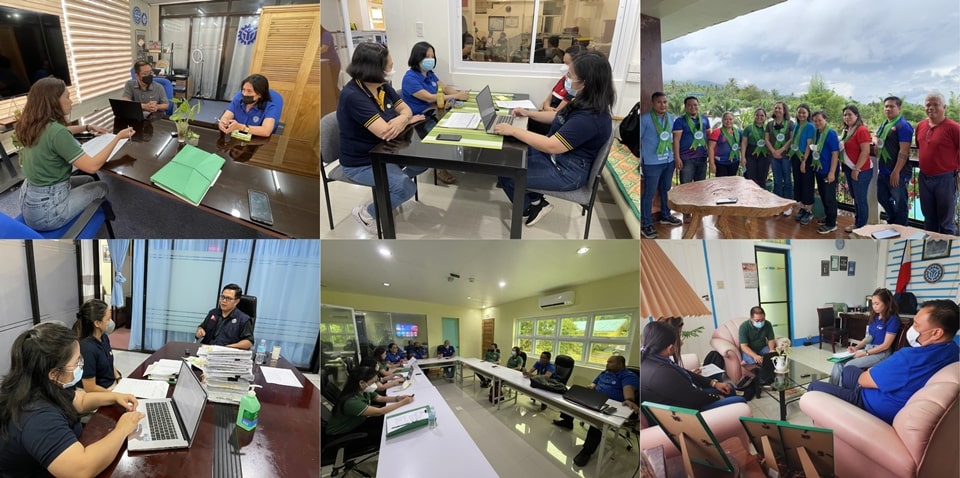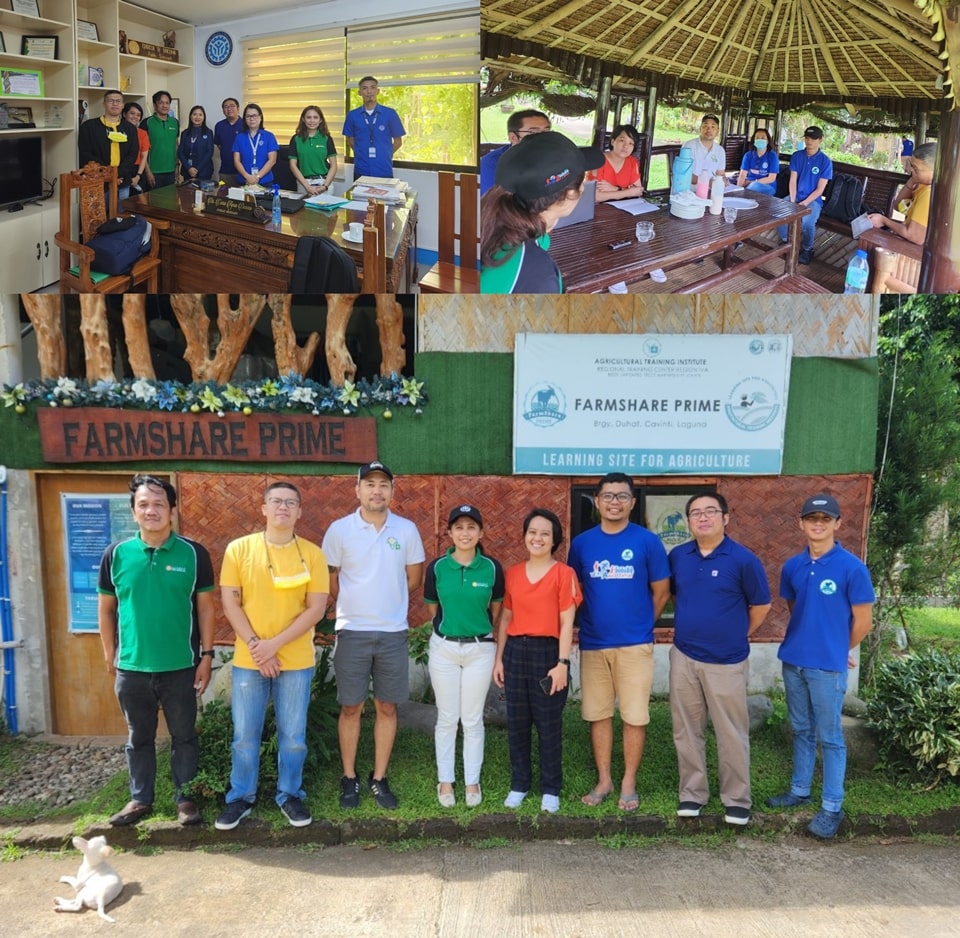To document and assess the current status of implementation and operation of the Program on Accelerating Farm School Establishments (PAFSE), the Southeast Asian Regional Center for Graduate Study and Research in Agriculture (SEARCA) conducted a series of key informant interviews in selected farm schools across the country. The PAFSE is a program of the Technical Education and Skills Development Authority (TESDA) to encourage the establishment of farm field schools to increase farm productivity and train farmers to become agro-entrepreneurs through the provision of scholarships.
Among the sites visited are Region IV-A CALABARZON, Region V – Bicol Region, Region VII – Central Visayas, Region VIII – Eastern Visayas, Region X – Northern Mindanao, and Region XIII – Caraga Region. A total of 25 farm schools across the country were visited from 2 to 27 October 2022. The team also visited two TESDA Administered Schools and three Provincial Training Centers to gather information on their implementation structure in comparison with the established privately owned and managed farm schools.
Using a case study approach, challenges and barriers in terms of program implementation and processes were identified to draw lessons learned and recommendations to enhance and scale up PAFSE in the Philippines. Specifically, the interviews focused on the farm school’s origin and establishment; the conduct of training, problems and prospects; and recommendations on how the program can be improved for the farm managers and farmer-beneficiaries. The study also identifies the management practices of the farm schools in relation to the scholarship support from TESDA, management of funds, and the conduct of trainings in their respective farm schools.
 The project team pre-tested the Key Informant Interview Questionnaire on the Farm School Owners/Managers and TESDA Farmer Beneficiaries in Pila, Laguna on 21 September 2022.
The project team pre-tested the Key Informant Interview Questionnaire on the Farm School Owners/Managers and TESDA Farmer Beneficiaries in Pila, Laguna on 21 September 2022.
It was noted that each agriculture-related training program receives different training cost support from TESDA. Thus, farm managers were employing different approaches in managing allocated TESDA funds and ensuring farm beneficiaries are able to finish the competencies or certifications they enrolled to.
 The project team interviewed Farm Managers, Trainers, and Farmer Beneficiaries in selected farm schools in various regions in the Philippines.
The project team interviewed Farm Managers, Trainers, and Farmer Beneficiaries in selected farm schools in various regions in the Philippines.
SEARCA also interviewed TESDA Regional and Provincial Directors, Focal Persons, and other TESDA staff to understand how the agency executes such program from the program registration to allocation of scholarship slots, accreditation, certification, and the tracking of the scholars’ employment.
 Courtesy calls and interviews with TESDA Regional and Provincial Officers and TESDA-administered Schools.
Courtesy calls and interviews with TESDA Regional and Provincial Officers and TESDA-administered Schools.
 TESDA Central Office joins SEARCA during the data gathering in Cavinti, Laguna.
TESDA Central Office joins SEARCA during the data gathering in Cavinti, Laguna.
SEARCA is now working on the data analysis and drafting of the evaluation report, which will serve as the basis for policy recommendations and development of possible innovations towards the improvement of PAFSE. The result of the study is slated to be presented to the TESDA Technical Working Group in the second week of December 2022.
This activity was spearheaded by Asst. Prof. Paul Joseph B. Ramirez, Project Leader; together with Dr. Rodmyr F. Datoon, Assistant Project Leader; and Ms. Imelda L. Batangantang and Ms. Ma. Christina G. Corales, Program Specialists, Ms. Darlyn R. Angeles, Project Coordinator, Ms. Stella Faye B. Estrella, Project Associate; and Mr. Jerrel Edric B. Mallari and Mr. Ronald P. Salazar, Project Assistants, all of the Emerging Innovation for Growth Department (EIGD).
This study, conducted in partnership with TESDA, is in line with SEARCA’s goal of achieving the desired outputs and outcomes of the Center’s 11th Five-Year Plan (FYP) with the theme “Accelerating Transformation Through Agricultural Innovation (ATTAIN).”